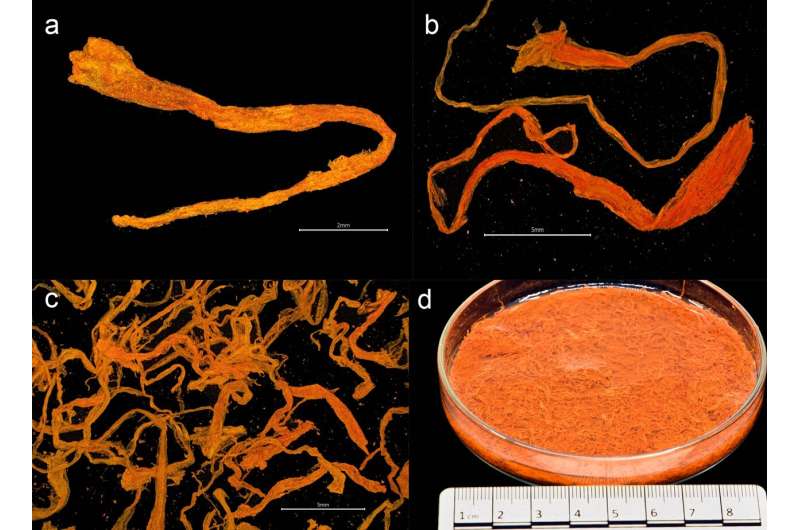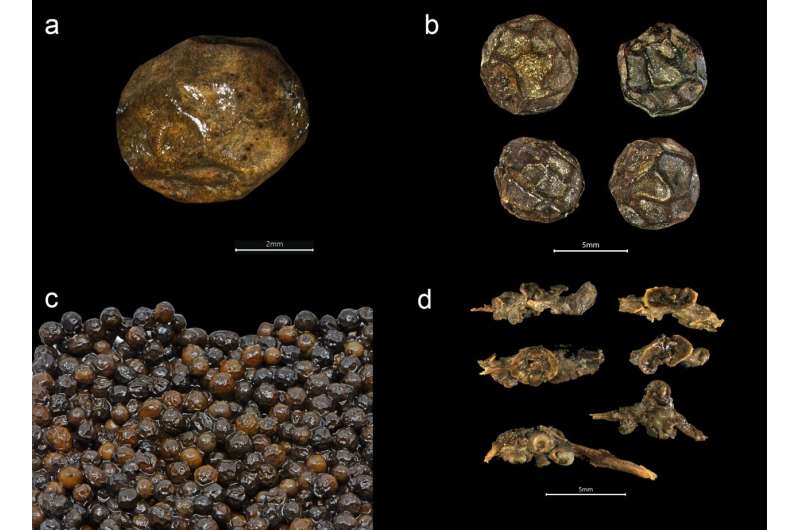A pair of archaeologists with Lund University in Sweden has found "a treasure trove" of plants aboard a sunken 15th-century Norse ship. Mikael Larsson and Brendan Foley describe their findings in PLOS ONE.
In 1495, Danish King Hans docked his ship Gribshunden off the coast of Sweden in preparation for a meeting with Swedish ruler, Sten Sture the Elder. His plan was to broker a deal that would give him control over Sweden as he had done with Norway, creating a united Nordic kingdom.
Unfortunately for Hans and many of his crew, the ship caught fire and sank. To give himself the upper hand, the King had filled his ship with both warriors and goods worthy of a rich and powerful man. The loss of the ship led to a change in plans—Hans attacked Sweden soon thereafter and conquered the country instead of negotiating for it. But the sinking of the ship also created a motherlode of artifacts for modern historians to study.
The wreck of the ship was found in the 1960s and was studied by marine archaeologists in the years thereafter, but not very thoroughly. The new study was launched in 2019 and continued through 2021. The team found that most of the expected artifacts had already been found in earlier expeditions, but something important had been overlooked—containers holding well-preserved plant material—more than 3,000 specimens.

Saffron from the Gribshunden shipwreck site. Plant parts of saffron: a–c) stigmas, d) petri dish showing a portion of the recovered saffron stigmas. Credit: PLOS ONE (2023). DOI: 10.1371/journal.pone.0281010
The researchers found spices such as nutmeg, cloves, mustard and dill. They also found samples of other plant material, such as saffron and ginger, peppercorns and almonds. Some of the spices would have come from as far away as Indonesia, suggesting that King Hans had developed an advanced trade network. The researchers also found snack items, such as dried blackberries, raspberries, grapes and flax, each find showing just how rich and powerful Hans had become. The researchers also found one non-edible plant, henbane, which, in the past, was used for medicinal purposes.
The researchers note that the plant specimens were in excellent condition due to the unique conditions of the site where the ship was found, a part of the Baltic Sea that is cold and low in salinity.



Recommended Comments
There are no comments to display.
Join the conversation
You can post now and register later. If you have an account, sign in now to post with your account.
Note: Your post will require moderator approval before it will be visible.